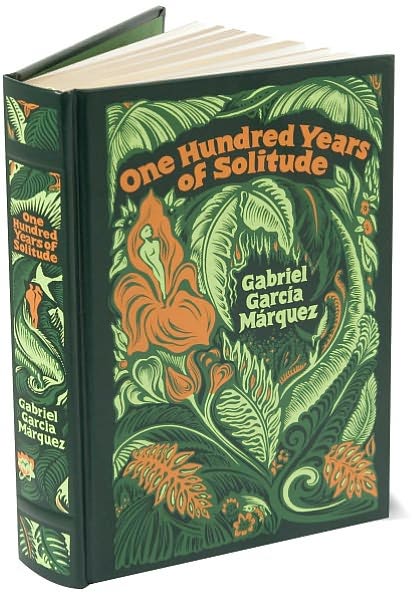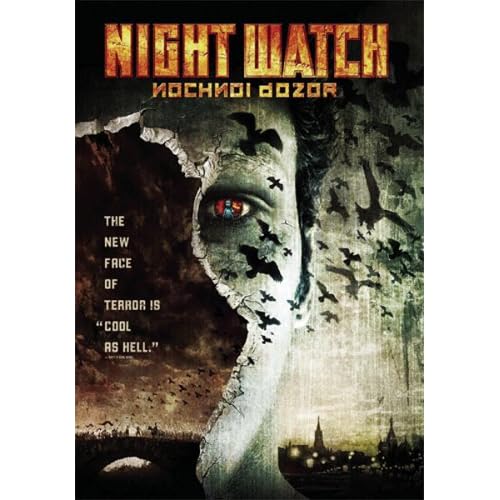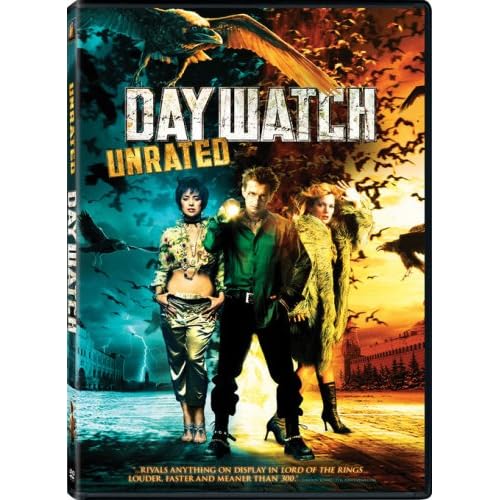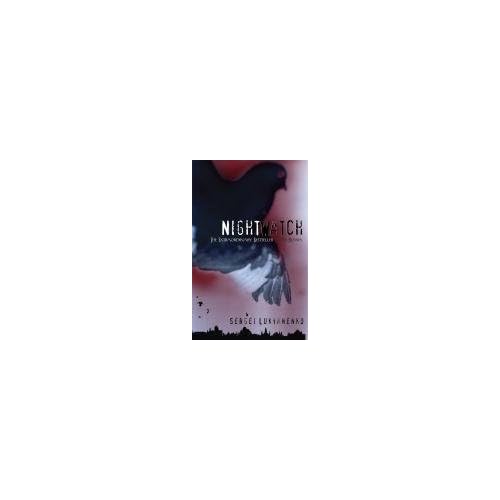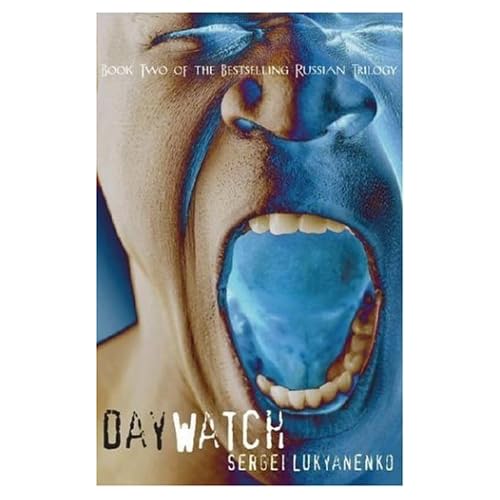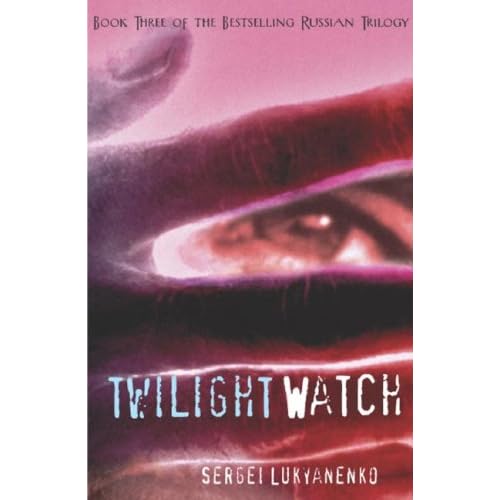Sunday, April 20, 2014
The Lasting Legacy of Gabriel García Márquez
Wednesday, December 18, 2013
Cover Art
Thursday, October 31, 2013
How To Kickstarter Pt. 3
With our Kickstarter we began with something catchy:
Whit Clayborne accidentally dates a soul eater and unwittingly falls for a vampire - and it's only his first week demon hunting...
This single sentence tells you about the project and hopefully draws you in with interest. Saying something like "I wrote a book and you might like it." won't get you very many backers. Think of something eye catching, something different, what makes your project unique and interesting?
Since we are promoting a novel, we used our content to explore a couple of different things.
We discussed the book in a section called “book summary.” While we didn’t describe the book in its entirety, we did try to list things that would interest potential backers.
We also talked about “us” (my co-author and I) because people want to connect with the individuals who made the product. The video can be used to do this as well, but we explored our background and our interest a little further in the written content.
We discussed the prizes and shared some graphics related to this topic.
We also shared our stretch goals (if you make more than your initial goal amount what else will you be doing with backer’s funds?) and I tried to make these related to what we are doing but also interesting so people would be excited about reaching them.
Lastly, I shared where people could keep in touch with us and our future projects. Your connection with potential backers doesn’t end with Kickstarter. Let people connect with you across the Web and maybe they’ll buy future books/CDs/artwork – whatever you’re working on.
My first update was a video, my second was a link to the first chapter of the book, and my third were the cute bitstip comics I shared in a previous post on here. These were all employed to hopefully get new people interested in the project and to keep backers interested in what’s to come.
Don’t use updates to tell people what you had for breakfast. These shouldn’t be a nuisance and should only be used to thank backers and to get backers excited. By making updates open to the public you can potentially hook new people but if you have content you only want your backers to see then make sure the update is not public.
Ultimately, keep your content appealing both with the text you use and the variety of media available to you to promote your project.
Want to see our content in action? Check out our Kickstarter at:
http://www.kickstarter.com/projects/2121709675/the-beginning-of-whit-a-laugh-out-loud-urban-fanta
Monday, July 29, 2013
Creating Content for an Author Facebook Page
While I've seen a lot of authors approach their FB pages in different ways, one thing that makes any FB page "successful" (i.e. gets more traffic/more likes) is viral content. Viral implies that it is shared across the web (or FB) reaching more people than just a single share by your page. Content can be anything that applies to your brand (i.e. you as an author, your book, your interests).
Take into consideration what types of things are often shared on FB.
Quotes are pretty common among FB content and FB shares. Here are two quotes I added to images and shared on my FB page. Notice how they apply to my brand (fantasy author).
So consider what your brand is and what content you can make to add to your page and get people to share. Also note that when it's time to promote your book asking family and friends to share any posts about your book is helpful. Don't ask them to share every post you make (unless you want to be annoying) but getting them to share your posts about your actual novel will get more eyes on that post and more potential sales.
Sunday, June 2, 2013
Unigons & Dracorns
 |
| (It's even drooling for added cuteness.) |
Sunday, May 26, 2013
Work(s) in Progress - 5/26/2013
Book Two of the 'Full of Whit' Series "Whit's Complicated."
Book One dealt with Whit, our incompetent but with good intentions demon hunter moving to the Big City.
 |
| (possible cover for book one in the series) |
 |
| (This is a picture I drew for the character Dorian in "No Rest" but it probably is more like Lem now that I think about it.) |
Sunday, March 24, 2013
Is Ragnar the New King Arthur?
Recently the History channel started airing a new television show called Vikings. Set in the 700s-800s, Vikings is a historical drama based on mythology and storytelling. This show is at times violent and other times NSFW for other reasons; but its interesting storytelling and has characters you're automatically invested in. Since it's created by the History channel the bar for realistic portrayal is higher and at times not met, but not so missed that a viewer is disgusted and refuses to watch any further.
The main point of this post though is about the focus of the show. The main protagonist is Ragnar, and up and coming Viking leader who at times echoes a similar mythology to that of King Arthur. His wife and his brother (blood brother or brother in war - idk) have an awkward relationship which might lead to a love triangle of sorts. He is well liked by his peers and makes a good war-band leader. In addition to these things, he must overcome the spineless and do-anything-to-stay-in-power earl who controls his village. But in the process of this he must also appear to be the better man and therefore win the hearts of the show's viewers much like the stories of King Arthur have won the hearts of children for hundreds of years.

Ultimately, when I pose the question is he the new King Arthur, the similarity is primarily based in the popularity of the character. Not just in how popular he is among his peers but how popular this character might become among the general viewing public. If this show becomes popular enough then maybe tales of Ragnar will spread through current generations like tales of King Arthur spread through previous generations. Probably not, but it's interesting to think about.
Wednesday, October 15, 2008
Blog Action Day: Poverty - A Writer's Perspective
In 2007, 37.3 million people in the U.S. were in poverty. The numbers are much worse when we look across the world, especially when considering children. 1 billion children live in poverty (1 in 2 children in the world). 640 million live without adequate shelter, 400 million have no access to safe water, and 270 million have no access to health services. 10.6 million died in 2003 before they reached the age of 5 (or roughly 29,000 children per day).
Poverty creates more than just a lack of food or a lack of clothing. It helps spread disease because people can not buy medicine; it helps spread viruses because people cannot drink clean water. Poverty limits children's ability for education, which limits their ability to be able to ensure financial security as they join the work force. Growing up impoverished can lead to a life of crime.
Knowing about a problem is half the battle, what you do with that information can help so many lives.
What you can do:
Join online groups such as:
http://www.endpoverty2015.org/
http://www.one.org/
Contact local, State and Federal Governments on these issues
Donate time (habitat for humanity, food bank, soup kitchen)
Donate money
Play Free Rice Online to help the UN World Food Program to help end hunger

I know from personal experience what it’s like to be in poverty (it’s not all singing and dancing and having a monkey for a best friend). If it wasn’t for WIC and welfare, I wouldn’t have the life I have today. Please continue to support these systems, even if you feel like some people abuse the support, there are those that truly need it and lead successful lives because of the aid provided by the U.S. government.

Tuesday, August 5, 2008
The Wonderful World of Television
Xena Warrior Princess - 8 years of kicking ass without taking names entangled with fun and deep story lines. An alternate history fantasy with lovable characters and believable relationships.
Charmed - 7 years of vanquishing evil while always searching for the highest power - love. Sounds cheesy, but this urban fantasy made a deep impression on viewers.
Both of these series are echoed in volumes upon volumes of fan lit. Although it can be tough to recreate visuals into text, books were a way for these characters to survive as their series ended. These shows not only inspired writers to continue their story lines, but also to create new characters which hold similar attributes.
I know, my female leads are always a little charmed and have a bit of Xena in them. Now, if only I could stop re-watching these shows and get back to writing my stories...
Tuesday, July 22, 2008
Fantasy Pick for July 2008
I came across the first one years ago:
(The Colo(u)r of Magic)
 and I loved it.
and I loved it.The second book
(The Light Fantastic)

was equally enjoyable, but after that the series begins to follow new characters who may reappear from time to time throughout the 36 book (and still growing) series. Now, being a slow reader, I only got through the first five books, but the entire series looks promising. If you're looking for a good fantasy read, check these books out.
Monday, June 23, 2008
Amazing Writing Books
 Stephen King's On Writing:
Stephen King's On Writing:This book gives you a look at the
life of a writer, the trials and
errors, the ups and downs, the
work you have to put into the
craft before you get a paid (usually).
It's very insightful, interesting
and helpful. Other than just
King's life story, it holds pointers
and lessons in writing.
 Orson Scott Card's How To Write Science Fiction & Fantasy:
Orson Scott Card's How To Write Science Fiction & Fantasy:This is an awesome book devoted
to the craft of writing science
fiction and fantasy. It delves into
character and world creation
while giving help on the subject
of writing well and exploring the
business of writing for the novice
writer.
 Orson Scott Card's Characters & Viewpoint:
Orson Scott Card's Characters & Viewpoint:This book may not be specifically
aimed towards science fiction
and fantasy authors, but it is
helpful when writing any story.
I find that Card explains things
well and thoroughly, leaving
the reader with few questions
and new tools to create better
characters in their tales.
 Robert Masello's Writer Tells All:
Robert Masello's Writer Tells All:This is an awesome book
that explores all
elements of writing
a novel, from the
birth of an idea,
through it's publication
and beyond. This is a book that will guide an author through every stage of writing and getting published. (Also check out Robert's Rules of Writing for good tips).
Wednesday, June 4, 2008
World Creation
Now, Patricia C. Wrede (a wonderful fantasy author), has established an amazing set of questions for assisting authors in world creation. I am attaching a link to it HERE.
I, though, will go through some basic points of world creation for those of you who don't want to (maybe not now, maybe not ever) look through such a long list, and for those of you who like to see the basic points instead of/or with all of the small details.
First, you need to determine the time and place. This is a "duh" suggestion, but necessary. Is it in the past? Is it in the future? Is it on Earth? Someplace similiar to Earth? Someplace not similiar to Earth? In space? In the ocean? This is very basic, but building a fantasy world can be complex and you'll need this simple foundation to build the rest of your world on.
Next, I like to explore what kind of people live in this world. Is everyone pretty much human (or based on the human design), or are there elves, dwarves, unicorns etc.
Thirdly, I like to determine the geographic landscape. Sometimes I'll make maps (especially as I get further along in the story and I need to visually see where I'm taking my characters). I draw my maps by hand but I recently came across a program called Auto Realm which seems promising. Along with geography comes climate. Does your world have four seasons like we do or only two? Does it rain constantly or never?
As a final but complex stage to world building, I consider many things about my people.
-What is their history? This doesn't have to be too complex unless it affects the story or you like writing epics.
-What is their education? Also does not have to be too thought out, just limited to your main characters or an explanation of some sort of universal education (as in everyone learns to be a warrior, or everyone learns magic).
-What is their form of magic/what weapons do they use? This does not mean the magic has to be a weapon, it's just that in my experience a character either has magic, a weapon or both, so determining one can go hand in hand with determining the other.
-What are their customs/political organization/commerce/dress/food/manners/spirituality? These can be thought up together, because it is the layout of the society and gives a good direction for what food to serve, what clothes to wear, if there is a king or queen, if there is a proper way to greet people, if there is a class system, do they have a religion, so on and so forth.
Hopefully this helps in your attempts to create new worlds for your fantasy tales.
Tuesday, May 27, 2008
How I Craft a New Tale
Usually, a story will be like a blurry image. I won't know who or why, just what and then my mind goes to work. Here's an example: a scene with two people fighting. Who are these people?What is their back story? Why are they fighting? Who will win? What is there to lose? What is there to gain? How will their own stories change depending on the outcome of the fight? Where will they go afterward?
Once I start working out a story, big plot points will jump out at me and I'll think - this must happen! - and I will work on connecting the dots, getting from point A to point B in the most logical fashion, while keeping in touch with my characters, my world, my limited magic.
As my tales grow, the characters may pull the story into a new direction, that I would not have forseen until they became complete entites with their own wants and needs. But in the end, as the story comes to a close, I just hope I did the original image justice.
Wednesday, May 21, 2008
Subgenres of Fantasy
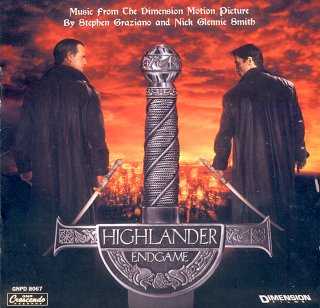







Overall, as a writer of fantasy, you need to have an understanding of these subgenres because publishers will ask which type of fantasy you write and because it limits what is possible in your story/guides the plot, conflict, character creation and world creation of your stories. This knowledge will also be helpful as we explore more elements of writing in upcoming posts.
Thursday, May 15, 2008
Writing Fantasy 101
Magic is key, it is the heart which beats inside most fantasy novels. If there wasn't magic present, most plot points wouldn't exist, a lot of characters wouldn't be created, the story wouldn't be the story if you took away the element of magic. If the wardrobe wasn't enchanted, the children would never have made it to Narnia and therefore, there would have been no tale of the Lion and the Witch.
Now, as you are creating your magical world, you must be controlled. A story where anything is possible is not a very interesting story. Your characters must still be flawed and your conflicts must still be challenging - even seemingly impossible to overcome.
I remember being a child and playing make believe with kids at school. Often we ran into a situation where we would try to one up one another with our superhero/supervillain abilities until it came to a point where we had unlimited powers. Our battle was a draw and no one wanted to play anymore. This will happen to readers if your magic is limitless, they won't want to read your story anymore.
So when writing fantasy: make your magic unique, but keep it controlled.
Tuesday, May 6, 2008
Fantasy Pick
Wednesday, April 30, 2008
Inspired, On Occasion.
 |
| (http://www.revelationillustrated.com/shop/image08.asp) |
Tuesday, April 22, 2008
The First Part Second
It still boggles my mind, the number of people who believe there is no difference between these two genres, but if there was no difference, why have they been given different names? It is true that they are similar, and that is why they are sub genres of “speculative fiction”, but they have differences which allow books to be categorized as one genre or the other.
Both science fiction and fantasy can be set in worlds past, present or future, which contain fantastical elements which make them different from the world we know. Both may contain people or objects with powers not found in our world. The main difference between fantasy and science fiction is how these worlds and powers are explained.
If a person’s powers are due to magic – its fantasy.
If a person’s powers are due to science – its science fiction.
In some worlds there will be a mixture of science and magic, but the dominant force will determine the genre.
If a spaceship flies because of magic – its fantasy. Just being set in space does not make it science fiction.
Luckily, most books in these genres makes it very clear to which genre they belong. Some ride the line between science fiction and fantasy, but ultimately they are defined as either sci/fi or fantasy never as both genres.
This is a pretty quick explanation and hopefully it makes sense.
Tuesday, April 15, 2008
A bit more about fantasy as a respectable genre...
To these “haters” and to those of you interested in this battle, I would like to point out several “fantasy” books which have become classics.
Animal Farm by George Orwell
Le Morte d'Arthur by Thomas Sir Mallory
Idylls of the King by Alfred Tennyson
Watership Down By Richard Adams
Don Quixote By Miguel De Cervantes
Authors that have written more than one classic fantasy: Tolkien, Shakespeare.
In our sister genre: science fiction, we see many classics:
Frankenstein
Turn of the Screw
1984
Fahrenheit 451
Slaughterhouse-Five
It seems to me that many naysayers believe that fantasy is unbelievably easy to write and a fantasy writer has no credibility as an author. To me, a fantasy novel is just as difficult as writing any other novel, and as the aforementioned books show, fantasy novels can contain material that not only lets them transcend the limited beliefs placed upon their genre but also makes them thought provoking or insightful novels independent of fantastical or scientific elements.
I think it is just as likely for any fiction novel to be crap as it is for a fantasy novel to be crap. With that in mind, it is also as likely for a fantasy novel to be superior to the majority of the rest of what is published as it is for any other genre to be placed above the mainstream novels.
Ultimately, if you are a fantasy reader or writer, be proud of your genre, especially because it is proving that it should be respected with each new publication printed.
Tuesday, April 8, 2008
Introductions...
In all honesty, I do love fantasy and feel as though it is underrated. I also love sci-fi (when it stays where it belongs ;p) and I hope to use this blog to promote the fantasy genre to readers and writers alike. Enjoy.


